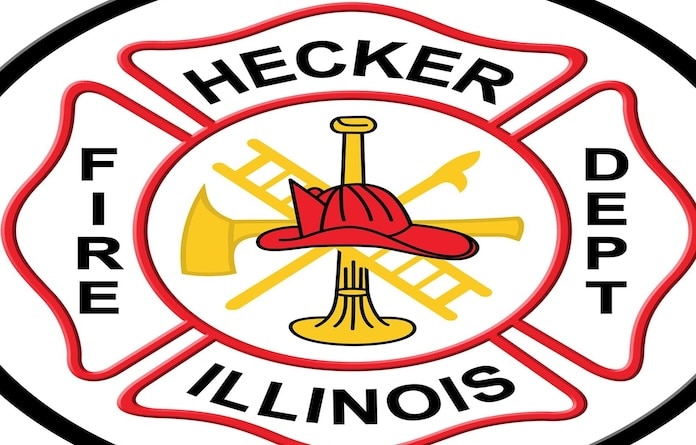Concern locally over cannabis legalization
Gov. JB Pritzker signed House Bill 1438 into law last Tuesday, making recreational marijuana legal in Illinois starting Jan. 1.
“Legalizing adult-use cannabis brings an important and overdue change to our state, and it’s the right thing to do,” Pritzker said.
Beginning Jan. 1, residents 21 and over can possess up to 30 grams of marijuana for recreational use. Citizens can also possess five grams of cannabis concentrate and half a gram of tetrahydrocannabinol in a cannabis-infused product.
THC is the compound in marijuana that gets people high.
Non-residents can posses half those amounts.
The bill provides for licensing of those who cultivate, process, transport and sell the drug, along with regulation of the drug itself.
Marijuana products will be taxed at different amounts depending on the THC levels in them.
For items with 35 percent or below THC level, they will be taxed at 10 percent of the purchase price. Cannabis with a THC level above 35 percent will be taxed at 25 percent. All cannabis-infused products will be taxed at 20 percent.
Additionally, the state will levy a 7 percent tax on the sale of cannabis by a cultivator or craft grower to a dispensing organization.
The Illinois Department of Revenue projects the cannabis industry will generate over $57 million in tax revenue and licensing fees next year, with that number going up to $375.5 million in 2024.
That money will go to various funds, including 35 percent to the general revenue fund, 20 percent to help address substance abuse and mental health concerns and 10 percent to help pay the state’s backlog of unpaid bills.
Although the law provides a boost to the state’s revenue, opponents of legalization argue it will have negative effects on public health and safety.
A common concern is an increase of people driving while under the influence of marijuana, leading to more traffic crashes.
There is some merit to that argument, as a Colorado Department of Public Safety report found the number of fatal crashes where at least one of the drivers had cannabis in their system increased from 55 in 2013 to 138 in 2017.
In 2013, recreational marijuana was illegal in Colorado, but it was legal in 2017.
The report cautions, however, that having cannabis in the blood does not indicate impairment.
The presence of THC may be an indicator of impairment, and fatal crashes where a driver tested over the legal limit for that declined from 52 in 2016 to 35 in 2017.
The bill does establish a task force to study driving under the influence of cannabis and how law enforcement should handle it.
Nevertheless, Monroe County Sheriff Neal Rohlfing said the law will have a negative impact on law enforcement, noting that a recent poll of National Sheriff’s Association members found increases in crime and impaired driving accidents after legalization.
“I feel it is going to cause us more problems, specifically with driving accidents and issues around that,” Rohlfing said. “We will probably see an increase in domestic-related issues and other assaults and batteries. A lot of other crimes revolve around the use of drugs.”
Rohlfing also predicted the illegal sale of marijuana would increase after Jan. 1.
“There’s less of a fear of being caught,” he said. “There’s less of a fear of being prosecuted.”
Rohlfing also pointed to the impact on youth’s perception of marijuana and the hundreds of police dogs trained to detect marijuana as negative impacts.
In part because of law enforcement’s opposition to legalization, the Monroe County Coalition for Drug-Free Communities is also against the new law.
“There’s disappointment on our part that the focus on this seems to be more of an opportunity or perceived opportunity at increasing tax revenue versus what the public truly wants or what is best for the communities,” coalition chairperson Gary Most said.
Another integral part of the law addresses what proponents of legalization call the harms of the war on drugs.
The legislation takes a threefold approach to that by attempting to create equity through ownership and licensure, investing in communities that suffered from the war on drugs and expunging the records of those with minor marijuana offenses.
In the first area, the law creates a $30 million low-interest loan program to defray start-up costs associated opening a cannabis business.
The bill includes a provision for “social equity applicants” to apply for licensing.
Those are people who live in an area disproportion at ley impacted by the war on drugs, the majority of whose employees live in one of those areas or have a minor marijuana offense on their record.
A disproportionately impacted area is a poorer one that has high rates of arrest, conviction and incarceration for marijuana offenses.
The second part of the bill addressing equity creates the Restore, Reinvest and Renew Grant Program “to address the impact of economic disinvestment, violence and the historical overuse of the criminal justice system.”
Twenty-five percent of the state’s revenue from cannabis legalization will support that program.
The final prong of the equity portion of the bill allows for expungement of over 700,000 individual’s records related to marijuana crimes.
Pritzker’s office estimates about 405,000 of those individuals will be eligible for automatic expungement or the clemency process.
In that category, local law enforcement and Illinois State Police will automatically expunge arrests that did not result in a conviction for possession and manufacture or possession with intent to deliver charges for up to 30 grams.
Pritzker will also grant pardons and authorize expungement for people who have been convicted of those offenses.
Additionally, Pritzker’s office said about 302,000 individuals will be eligible to file a motion with courts to vacate convictions for possession up to 500 grams. State’s attorneys can also file those motions.
No records will be automatically expunged if they are connected to a violent crime, but the individual or state’s attorney can file a motion to vacate that conviction.
Monroe County State’s Attorney Chris Hitzemann seemed hesitant about that change.
“At the time the individuals chose to take the actions that led to convictions, they had to make a conscious decision to disregard the law,” he said. “However, anyone who has been convicted of an offense is free to request a pardon and/or clemency.”
A final important component of the law is it forbids municipalities from banning marijuana.
It does, however, allow them to regulate where and how many cannabis businesses can exist within their boundaries. The laws can not be more restrictive than the state’s law.
Waterloo Mayor Tom Smith said the city was waiting to receive example policies from the Illinois Municipal League so it can decide how to regulate those businesses.
Columbia’s Interim City Administrator Al Hudzik said that city is in a similar situation.
“Since it’s not going into effect until Jan. 1, that gives us a little time to do whatever research needs to be done and come up with whatever restrictions or lack of restrictions the city decides to have,” Hudzik said.






